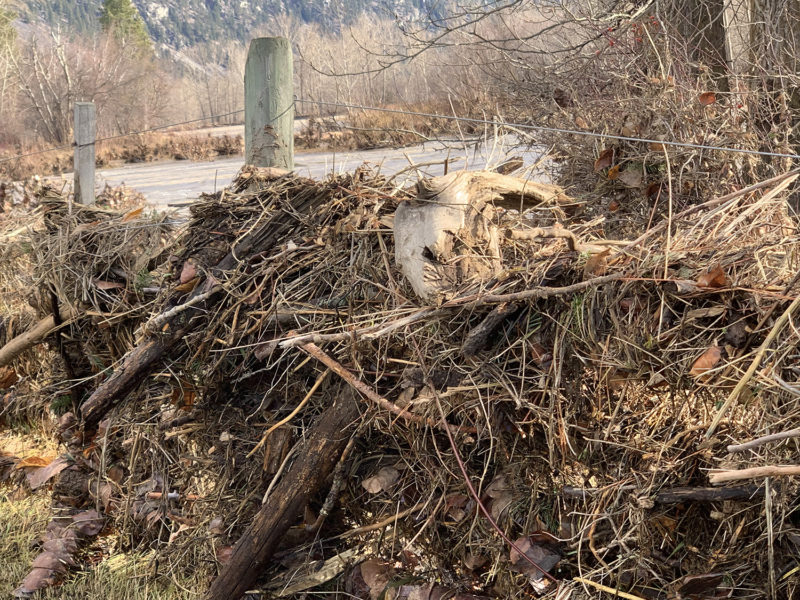The floodwaters are finally receding in the Lower Mainland, but farmers across southwestern BC now face the monumental challenge of cleaning up their properties.
Just 500 properties in the Fraser Valley remained under evacuation orders on December 7, according to the BC Ministry of Agriculture, Food and Fisheries. Those farmers who have returned have been busy clearing debris, sanitizing facilities and trying to return ongoing operations to normal.
But the much larger task of disposing of carcasses, debris and preparing fields for a new growing season remains. The ministry says 626,000 poultry, 12,000 hogs and 420 dairy cattle perished in floods that hit the Lower Mainland following the extreme weather of November 13-15. The extent of losses in the Interior remains unknown.
BC agriculture minister Lana Popham plans to visit the Nicola Valley this week, weather permitting. Her federal counterpart, Marie-Claude Bibeau, also plans to visit BC in the coming days to see the damage and meet with producers.
Staff at emergency operations centres are organized into teams to assist farmers. The teams are helping producers coordinate feed and on-site care of animals and facilitate deadstock removal. Staff from the agriculture ministry are assisting with the removal of contaminated chemicals and other fertilizers, while the BC Ministry of Environment and Climate Change Strategy is the contact for other hazardous waste such as drywall.
Popham was unable to give an exact tally of ministry resources working with producers, but says it’s “all hands on deck” as the province moves from flood response to recovery.
Just how much work remains to be done is visible at Kane Lake Ranch west of Merritt, where John and Kate Anderson run 250 head.
The extensive damage to Highway 8, including the loss of four bridges, didn’t impact their ranch directly, but they still have plenty of cleaning up to do. Riparian improvements helped protect their property but will also require costly repairs.
“We are in a better position than a lot of people,” John told Country Life in BC. “We’ve invested significantly over the last few decades building riparian fish-friendly habitat along the river. … That helped us significantly with the flood but there is a lot of damage.”
The flooding took out fencing along the river as well as the pumphouse for their irrigation lines. In addition, John estimates that between 400 and 500 tons of hay in the Nicola Valley was lost.
“People have lost hay that they can’t retrieve … and that’s on top of a drought year,” he says.
He says government needs to provide immediate help ensuring local ranchers have access to feed, but also make long-term changes that streamline regulations governing works in riparian areas that help make the landscape and ranches more resilient.
The agriculture ministry has said it is assessing the feed resources available to support ranchers. It is also allowing for late participation in the 2021 AgriStability program. Producers who were not enrolled by December 1 can now submit claims for this year through to the end of 2022.
BC is also working with Ottawa to develop an AgriRecovery program that will provide support to producers affected by flooding and mudslides.


 Bredenhofs win national honours
Bredenhofs win national honours